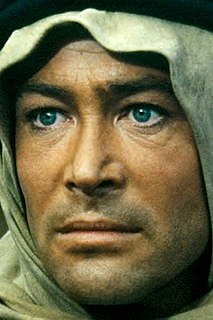A Quote by George Eliot
It is, I fear, but a vain show of fulfilling the heathen precept, ''Know thyself,'' and too often leads to a self- estimate which will subsist in the absence of that fruit by which alone the quality of the tree is made evident.
Related Quotes
Such do not always understand the authors whose names adorn their barren pages, and which are taken, too, from the third or the thirtieth hand. Those who trust to such false quoters will often learn how contrary this transmission is to the sense and application of the original. Every transplantation has altered the fruit of the tree; every new channel, the quality of the stream in its remove from the spring-head.
Once we have a firm practice of compassion our state of mind becomes stronger which leads to inner peace, giving rise to self-confidence, which reduces fear. This makes for constructive members of the community. Self-centredness on the other hand leads to distance, suspicion, mistrust and loneliness, with unhappiness as the result.
God sees the minds (ruling principles) of all men bared of the material vesture and rind and impurities. For with his intellectual part alone he touches the intelligence only which has flowed and been derived from himself into these bodies. And if thou also usest thyself to do this, thou wilt rid thyself of thy much trouble. For he who regards not the poor flesh which envelops him, surely will not trouble himself by looking after raiment and dwelling and fame and such like externals and show.
When you take a tree that is rooted in the ground, and transfer it from one place to another, the tree will no longer bear fruit. And if it does, the fruit will not be as good as it was in its original place. This is a rule of nature. I think if I had left my country, I would be the same as the tree.
Fear is the tool of a man-made devil. Self-confident faith in one's self is both the man-made weapon which defeats this devil and the man-made tool which builds a triumphant life. And it is more than that. It is a link to the irresistible forces of the universe which stand behind a man who does not believe in failure and defeat as being anything but temporary experiences.
We cannot too soon convince ourselves how easily we may be dispensed with in the world. What important personages we imagine ourselves to be! We think that we alone are the life of the circle in which we move; in our absence, we fancy that life, existence, breath will come to a general pause, and, alas, the gap which we leave is scarcely perceptible, so quickly is it filled again; nay, it is often the place, if not of something better, at least for something more agreeable.
Anything an artist does is to show ourselves as we really are, which is a complex thing. I don't think that one work of Philosophy or Art, or Letters, or Acting, or Middle Playing, or Tightrope Walking, or Flea Circuses has made mankind better, if by better you mean kinder, wiser, more tolerant of each other. One thing self knowledge. Knoticayton: know thyself.
If a man does not keep pace with his companions, perhaps it is because he hears a different drummer. Let him step to the music which he hears, however measured or far away. It is not important that he should mature as soon as an apple-tree or oak. Shall he turn his spring into summer? If the condition of things which we were made for is not yet, what were any reality which we can substitute? We will not be shipwrecked on a vain reality.






































